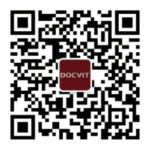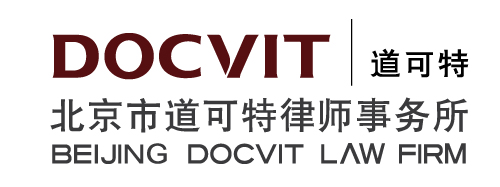Commercial libel, according to article 11 of the Anti-unfair Competition Law, refers to the fabrication or dissemination of false or misleading information that damages the goodwill or product reputation of a competitor. In its Model Provisions on Protection Against Unfair Competition, the World Intellectual Property Organisation lists two types of commercial libel: false statement and improper statement. The latter means an unfair, inaccurate and incomplete description of objective information.

Senior Partner
DOCVIT Law Firm
FROM ‘FALSE FACTS’ TO ‘MISLEADING INFORMATION’
In article 11 of the Provisions on the Prohibition of Unfair Online Competition (Draft for Public Consultation), the State Administration for Market Regulation stipulates that business operators shall not fabricate or disseminate false or misleading information online to damage the goodwill or product reputation of their competitors. In this context, “false information” refers to information that is inaccurate and inconsistent with the facts, and “misleading information” refers to partially factual statements that easily lead to incorrect association.
Compared with the original stipulations on commercial libel, the regulation altered the wording from “false facts” to “misleading information”. This primarily reflects the fact that unfair competition is becoming more concealed and false facts are no longer components of commercial libel. And this goes hand in hand with the purpose of the Anti-unfair Competition Law – the effective protection of competitive order. Judicial practice is likewise moving away from using “false facts” as the basis for determining commercial libel.

Partner
DOCVIT Law Firm
CASE ANALYSIS
In Suzhou Langdong Network Technology v Chongqing Ant Microcredit (2020), the national corporate credit display system indicated that Ant Microcredit was liquidated in 2014, while the “modified time” on Qichacha, a popular company-profile aggregator under Suzhou Langdong, was listed as 5 May 2019. The court was of the opinion that based on the correlation between data and information, the quality of such data directly affected the goodwill of Ant Financial (currently Ant Group) and Ant Microcredit. By publishing and sharing misleading liquidation information on Ant Microcredit, Suzhou Langdong impaired the rights and interests of the two data subjects, constituting unfair competition.
In Shanghai Guanying Shock Absorber v Chongqing Songjiang Pipe Equipment (2017), the court found that, by way of deliberate arrangement and placement of images and texts related to Shanghai Guanying, Chongqing Songjiang created the public misconception that Shanghai Guanying’s products and trademark were counterfeit, leading to the false impression that it was an infringing company. Chongqing Songjiang damaged the goodwill and product reputation of Shanghai Guanying and in turn benefited from the unfair competition, constituting commercial libel. This was the first time the amended concept of commercial libel under the Anti-unfair Competition Law was applied by the Xuhui District People’s Court of Shanghai, which makes it a benchmark case for determining commercial libel from the dissemination of misleading information.
In a 2020 unfair competition case under which Jiuyanquan, registrant of the trademark “Xingxiangyuan (杏香源)”, filed a lawsuit against Jiuquan Hansen Ruida on account of a misleading statement on WeChat Moments that caused a serious decline in Jiuyanquan’s sales. The court held that “the statement in question – ‘Xingxiangyuan apricot peel tea is currently suffering from severe product quality issues’ – was enough to cause a significant adverse impact on the product in a misleading manner, constituting disruption to fair competition and a healthy market economy”. Listed among the Ten Typical Cases Involving the Internet by the Supreme People’s Court (SPC), the case is considered emblematic of commercial libel through the fabrication and dissemination of misleading information.
In the 2013 judgment for Beijing Qihoo Technology v Tencent, the SPC pointed out that the key to determining commercial libel is whether an operator damaged the goodwill or product reputation of its competitor through its misleading action. “Even if a statement is factual in and of itself, any one-sided and misleading representation will still damage the goodwill or product reputation of the competitor, and therefore breaches the integral component of article 14 of the Anti-unfair Competition Law.”
From comparative advertisement, business commentary to public relations there is no shortage of examples of statements or remarks involving market rivals. While we are seeing less fabrication and dissemination of outright lies, these have only been replaced by well-concealed and disguised misleading information. Affecting both the consumers’ general view of a company as well as their choice of products and services, misleading information compromises healthy market competition and causes an unfair allocation of social resources. In the case of misleading information, the fact that the information itself is true or partially true does not make it any less illegal.

As market competition evolves, the methods and tools of unfair competition are becoming more sophisticated and diverse. But no matter the variation, if it breaches the principle of social integrity, damages a competitor’s goodwill or product reputation via improper means, and seeks unmerited commercial benefits or market advantages, the operator will face punishment for unfair competition.
Bai Xiaoli is a senior partner and Zeng Yun is a partner at DOCVIT Law Firm

DOCVIT Law Firm
56/F Fortune Financial Center
No.5 East Third Ring MiddleRoad
Chaoyang District, Beijing 100020, China
Tel: +86 10 8586 1018
Fax: +86 10 8586 3605-8006
E-mail:




























